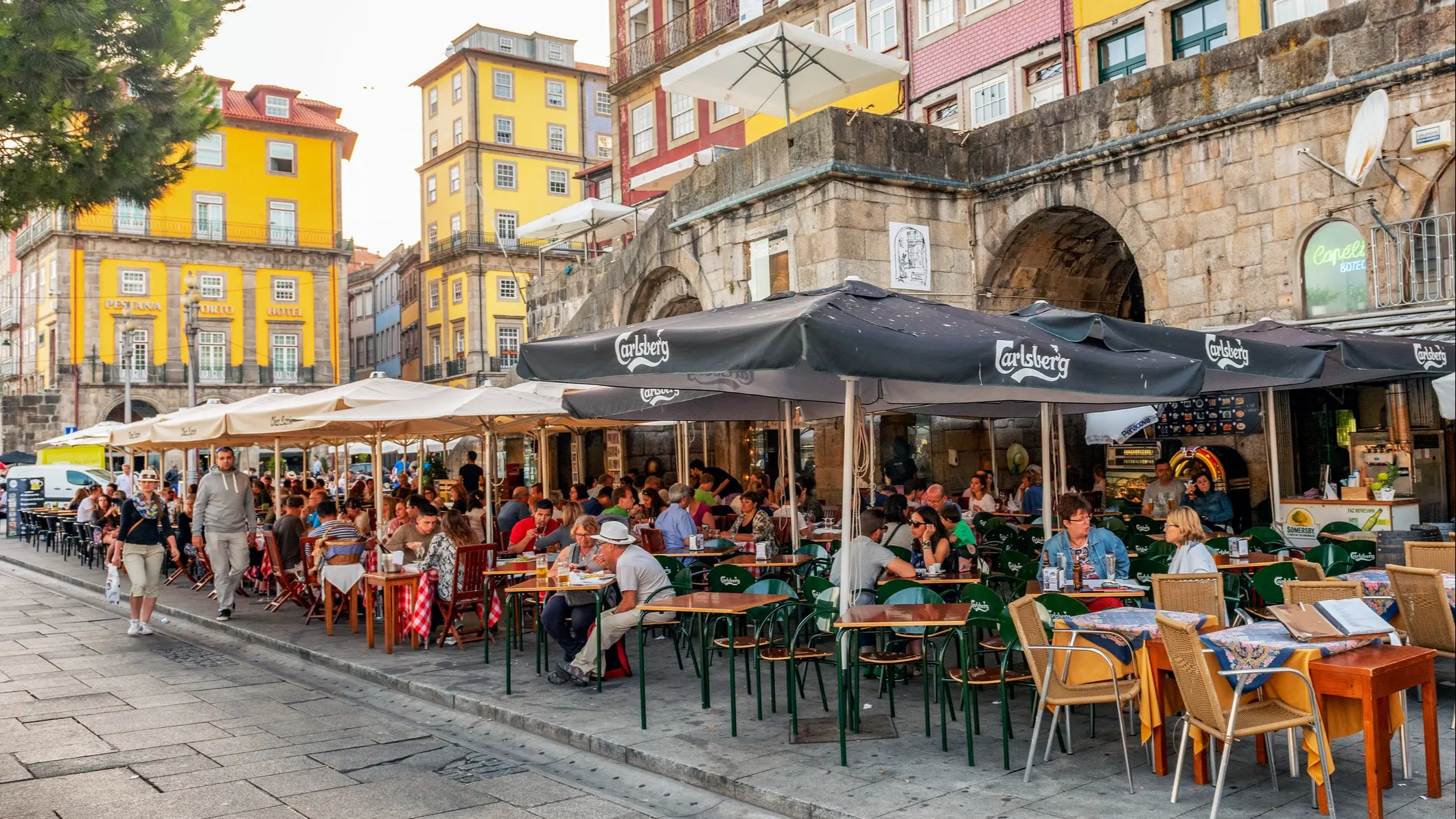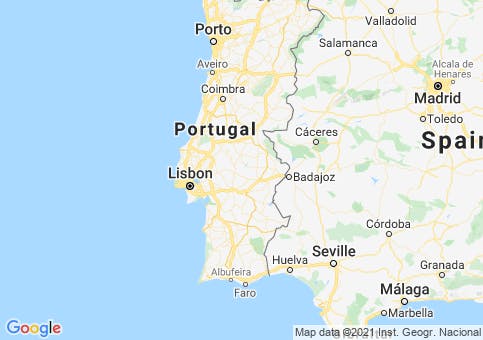By Terry Coles
Portugal has some of the best healthcare in the world, a vital necessity for retirees and others who wish to make Portugal their home.
Compared to the high cost of U.S. healthcare, Americans can expect to pay just a fraction of what they’re used to paying at home. Private health insurance in Portugal is available and affordable for people of all ages—with no deductibles or low copays, and even covers some pre-existing conditions.
Expats who become full-time residents in Portugal will have access to both the public and private healthcare systems, hospitals, and clinics.
Most medications or their equivalent which are available in North America can also be found in Portugal, and will cost much less. While some medicines require a doctor’s prescription, many can be purchased without one.
Dental procedures and routine care are also excellent in Portugal, not to mention affordable.
Many healthcare professionals speak some English, especially in the private healthcare system, where most are fluent. Doctors in Portugal are unhurried and take all the time they need to treat each patient fully.
Get Your Free Portugal Report Today!
Get Your Free Portugal Report Today!
Discover why we love a slower pace of life in Portugal and info on other European countries in our daily postcard e-letter. Simply enter your email address below and we’ll send you a FREE REPORT – Explore the Old World in Laidback Portugal.

By submitting your email address, you will receive a free subscription to IL Postcards and special offers from International Living and our affiliates. You can unsubscribe at any time, and we encourage you to read more about our Privacy Policy.
The Healthcare System in Portugal
All expats living full-time in Portugal have access to the healthcare system. After receiving your initial resident card, called a Título de Residência, your local health department, or saúde, will issue a health number called a número de utente. This unique identifying number will register you with the national healthcare system and be used whenever you visit a private healthcare facility.
Most doctors’ offices throughout Portugal are in the same complex as the hospital, and these doctors aren’t in private practice, but work for the hospital group. Even in the private healthcare system, doctors and specialists see patients in offices attached to the hospital. If the doctor feels the patient requires further testing, this is ideal as they can simply direct them to the appropriate department.
Private hospital websites offer patients all they need to know, including information about each provider's credentials, what languages they speak, where they studied, and what insurance they accept. Also, patients can easily schedule an appointment on the hospital website or call the helpline, where English-speaking operators are always available.
Doctors in Portugal commonly work on nights and weekends, so it’s possible to schedule appointments in the evenings and Saturday/Sunday. Surgeries and other procedures can also be scheduled at these times.
In the public healthcare system, all patients are supposed to be assigned to a doctor upon registering, but since there aren’t enough doctors in the public system to go around, most expats and Portuguese have yet to be assigned a doctor. In order to be seen by a doctor in the public system, patients show up at their local public clinic, take a number and wait to see whatever doctor is in attendance that day. Since there’s no choice of doctors, they may not speak English.
Even without health insurance, medical costs in Portugal are affordable. In a high-end, private hospital, a patient can expect to pay €50 to see a general practitioner or €90 to see a specialist. In the low-cost public healthcare system cost can be just a few euros and up or sometimes even free, depending on the service.
Private hospitals offer patients modern facilities with the latest technology and private patient rooms. Emergency room triage units include semi-private, curtained-off areas like most U.S. emergency departments.
The Portuguese believe that the public system should be preserved for their elderly population since they often can’t afford to use the private system. Those Portuguese that can afford private health insurance prefer to use the private system, as do most expats.
Throughout Portugal, private healthcare clinics offer an array of services, including, dental, clinical analysis, diagnostic exams, and consultations. Most shopping centers even include a private healthcare clinic, perfect for convenience or a sick visit. All clinics feature a doctor on call for walk-in emergency care for minor ailments like respiratory illnesses, fever, scrapes, etc.
Like the rest of Europe, Portugal has access to an emergency response system that can be reached by calling 112. Operators and dispatchers may or may not speak English.
An organization called Imergencies is geared toward the expat community and offers an emergency support system with English speakers on call around the clock. Foreigners may wish to choose this service for a yearly fee for peace of mind. The company offers an emergency call button that can be attached to the patient for an additional cost.
Health Insurance

All foreigners living in Portugal must show proof of private health insurance when applying for a temporary resident visa, for a period of five years.
Private health insurance starts at around €30 a person per month, for someone young but increases with age, pre-existing conditions, and how comprehensive the policy may be. A couple in their 60’s can expect to pay €300 a month for both, to have a high-end policy with a €15 copay to see a doctor.
Pre-existing conditions are typically only covered by insurance companies in Portugal when and if the patient can show proof of continuous coverage. Don’t cancel your existing policy in your home country until you’ve secured private health insurance in Portugal.
Lower-end private health insurance can be found for less money with higher co-pays. For those expats who rarely seek medical attention, a policy that covers 50% may be a good choice, while others prefer to pay more upfront and less at the doctor’s office.
Some insurance providers are Allianz, Fidelidade, Tranquilidade, Multicare, and Medis, but MGEN is the only private health insurance company that covers people of all ages. Those over age 70 have fewer options and MGEN may be their only choice. Most banks throughout Portugal offer private health insurance to their customers, and even grocery store chains offer discount plans.
Get Your Free Portugal Report Today!
Get Your Free Portugal Report Today!
Discover why we love a slower pace of life in Portugal and info on other European countries in our daily postcard e-letter. Simply enter your email address below and we’ll send you a FREE REPORT – Explore the Old World in Laidback Portugal.

By submitting your email address, you will receive a free subscription to IL Postcards and special offers from International Living and our affiliates. You can unsubscribe at any time, and we encourage you to read more about our Privacy Policy.
Quality of Care
Many of Portugal’s hospitals have received the prestigious Joint Commission International gold seal of approval awarded to the best healthcare facilities in the world. Some of these include Hospital Particular do Algarve, a private hospital and clinic group in the south. Lusiadas has facilities in several locations, CUF is a hospital, clinic network in Central and Northern Portugal, and Hospital da Luz, in Lisbon, to name a few.
Centro Neurológico Sénior (CNS) specializes in dementia, Alzheimer’s, and Parkinson’s care and is based in Torres Vedras. The center offers outpatient services, in-patient, long-term senior care, telemedicine, and home care.
Several teaching facilities in Portugal serve to train future doctors in the latest technology and procedures. These include the School of Health Services at the University of Minho in the north, the Faculty of Medicine at the University of Coimbra in the center, renowned for its expansive research fields and Ph.D. programs, and the Faculty of Medical Sciences of the New University of Lisbon in the south. Many, if not most, doctors who graduate from these fine universities do studies and residencies in the U.K. and other European countries. Additionally, many of their upper-level courses use English language texts and are taught in English.
Popular Treatments
Popular treatments commonly found in North America are performed in Portugal at a fraction of the U.S. cost. Most are covered by private health insurance, leaving little out-of-pocket expense to be paid by the patient.
Routine mammography is regularly performed in Portugal and includes a breast ultrasound done by a radiologist. The cost is around €170 in Portugal without insurance, compared to $800 or more in the U.S.
An MRI without contrast costs around €275 without insurance in Portugal, compared to $1,300 or more in the U.S.
A visit to an emergency room at a private hospital in Portugal runs around €400 compared to $1,200 or more in the U.S. If the patient needs to be admitted, expect to pay around €200 per day for a private room with medicine. With private health insurance, the overall cost will be significantly less. U.S. hospital charges start around $3,000 and increase to $15,000 or more per day.
A routine bone density test costs €100 in Portugal, but U.S. prices would run $300 to $1,200.
X-Rays in Portugal cost just €25 to €100 compared to $100 to $1,000 in the U.S.
Breast augmentation with silicone implants runs around €5,900 in Portugal and is not covered by health insurance. Saline implants would decrease the cost significantly. Compare this to U.S. costs of $20,000 or more.
Dental care in Portugal also costs far less than in the U.S. Expect to pay just €50 to €75 for a dental cleaning or a consultation with an English-speaking dentist. Beautify your smile with all-on-four dental implants that cost around €9,000 in Portugal, compared to $28,000 or more in the U.S.
Imagine spending six days in a JCI-accredited private hospital in Portugal. You are given a private room, a customized diet of your choice, given medication and other treatments round the clock, and surrounded by a friendly English-speaking staff. Your final cost comes to €1,400 before submitting to the insurance company and just €235 after they’ve paid their portion. And the cost to carry that private insurance for you and your wife, a couple in their 60s is around €300 per month.
Availability of Medications

Most medicines in North America or their counterparts are available in Portugal at low prices. Pharmacies can be found on almost every corner throughout Portugal, even in the smallest of towns. Pharmacists are highly trained, and most do speak English. Before moving, refer to the Infarmed website for specific medication availability
The European Medicine Association regulates medicine in Portugal and not the FDA in the U.S. Be sure to know the generic name of any required medications since brand names can differ.
Some life-sustaining medications, such as insulin, are free in the public healthcare system.
Medication pricing is three-tiered; typically, the consumer pays less with a prescription, slightly more without one, or even a bit more if paying the sticker price. But still, patients are pleasantly surprised at how low-cost medicines are in Portugal.
Some medications require a prescription from a doctor, while others can be sold without one. To obtain a prescription, patients enter their clinic, pay a small fee, and leave with a prescription. Depending on the medication, the on-call physician may need to see the patient before printing the prescription.
While most pharmacies are closed on Sunday, one emergency pharmacy is always kept open on a rotating basis. A sign will be posted on the door of all pharmacies indicating which pharmacy in town is open that day.
Emergency Services
In the event of an emergency, help can be reached by dialing 112 from any phone. A trained dispatcher will answer the phone and determine if the call needs to be routed to medical services, the police, or the fire department. Since there’s no guarantee that the dispatcher will speak English, it’s a good idea to have on hand a pre-written script containing your exact address and location along with some basic medical terminology in Portuguese.
Emergency medical technicians will arrive at your location and transport the infirmed patient to the closest public hospital. If the patient is stable and has private health insurance, they can request a transfer to a private hospital of their choice. Emergency rooms at public hospitals are fully equipped to handle trauma cases, while private hospitals should be reserved for non-urgent care.
Healthcare in Portugal is some of the best in the world but prior to moving be sure to consult your current physician. Know the generic names of any medication you need and check to see if they are available in Portugal. You may wish to obtain a copy of your current medical records to bring with you.
Get Your Free Portugal Report Today!
Get Your Free Portugal Report Today!
Discover why we love a slower pace of life in Portugal and info on other European countries in our daily postcard e-letter. Simply enter your email address below and we’ll send you a FREE REPORT – Explore the Old World in Laidback Portugal.

By submitting your email address, you will receive a free subscription to IL Postcards and special offers from International Living and our affiliates. You can unsubscribe at any time, and we encourage you to read more about our Privacy Policy.











